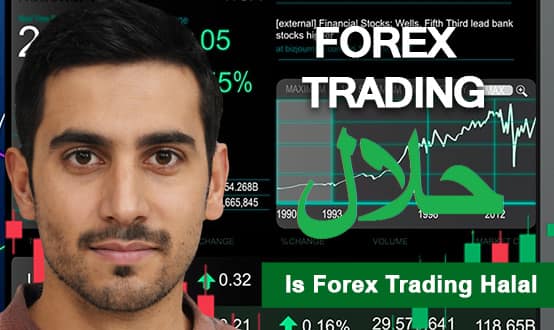The world of finance is constantly evolving, and with it, the complexity of navigating investment choices in accordance with Islamic principles. One such area that often raises questions is options trading, where investors buy or sell contracts that give them the right, but not the obligation, to buy or sell an underlying asset at a predetermined price and date. As a Muslim investor, you might wonder, “Is trading options halal?”

Image: adamfayed.com
This question isn’t a simple yes or no. Determining the halal status of options trading requires delving into the intricacies of Islamic finance, the nature of options contracts, and the ethical implications involved. In this comprehensive guide, we’ll explore the key considerations and provide insights to help you make an informed decision.
Understanding Islamic Finance and Options Trading
The Principles of Islamic Finance
Islamic finance, built upon the principles of the Quran and Sunnah, emphasizes ethical and moral conduct in financial transactions. Core tenets include:
- Prohibition of Riba (Interest): Islamic finance forbids charging or paying interest, viewing it as exploitative and unfair.
- Prohibition of Gharar (Excessive Uncertainty): Transactions involving excessive ambiguity or speculation are discouraged, as they can lead to unfair gains and losses.
- Prohibition of Maysir (Gambling): Any activity based purely on chance with no underlying value or benefit is forbidden.
Options Trading: A Brief Overview
Options trading involves contracts that grant the holder the right to buy (call option) or sell (put option) an underlying asset (stocks, commodities, etc.) at a specific price (strike price) within a specified timeframe (expiration date). While investors aren’t obliged to exercise their option, they must pay a premium to acquire this right.
Options trading can be complex, involving leveraged positions and potential for significant gains and losses. This inherent uncertainty makes it crucial to evaluate its compliance with Islamic principles.

Image: comparebrokers.co
The Halal Status of Options Trading: A Detailed Analysis
Arguments for the Halal Status
Proponents of halal options trading argue that:
- Underlying Asset Value: Options derive their value from the underlying asset, meaning that the trade is based on a tangible commodity or security, unlike pure speculation.
- Risk Management Tool: Options can be used for hedging or risk management, protecting investors against losses in their existing portfolios. This aligns with the Islamic principle of minimizing risk and maximizing certainty.
- Potential for Profit and Loss: The potential for profit and loss in options trading is similar to other permissible forms of investment, such as stock trading.
Arguments Against the Halal Status
Critics of halal options trading raise the following concerns:
- Gharar: Excessive Uncertainty: The inherent uncertainty of options contracts, especially near expiry, can be viewed as excessive speculation, violating the principle of Gharar.
- Maysir: Element of Gambling: The potential for rapid gains or losses in options trading, especially with leveraged positions, can resemble gambling, even if the underlying asset has real value.
- Riba: Potential for Interest Charges: Some argue that options trading can involve indirect forms of interest, such as when options are traded on margin, leading to leverage-based interest charges.
Key Considerations for Halal Compliance
To determine whether a specific options trade is permissible, Muslim investors should consider the following:
- Underlying Asset: The underlying asset must be halal according to Islamic principles, excluding items like alcohol, gambling, and pork products.
- Purpose of the Trade: The primary purpose of the trade should be legitimate, like hedging risk or seeking legitimate profit, not simply gambling or speculation.
- Risk Management: Investors should employ sound risk management strategies to minimize potential losses and ensure the trade remains within their financial capacity.
- Contractual Clarity: Options contracts should be clearly defined, with no hidden clauses or excessive ambiguity that could lead to Gharar.
- Fees and Charges: Ensure that fees and commissions are transparent and do not involve any hidden interest charges.
Latest Trends and Developments in Halal Options Trading
The Islamic finance industry is actively evolving to address the growing demand for ethical investment options. Several initiatives are emerging to clarify the halal status of options trading:
- Sharia-compliant options platforms: Some brokers and platforms are developing Sharia-compliant options trading services, applying strict Islamic principles to their operations.
- Fatwa pronouncements: Islamic scholars and regulatory bodies are issuing pronouncements (Fatwas) on specific aspects of options trading, providing guidance for Muslim investors.
- Sharia-compliant derivatives: Innovations are emerging in the area of Sharia-compliant derivatives, such as Islamic options based on underlying assets with halal characteristics.
Tips and Expert Advice for Halal Options Trading
While options trading can be complex, Muslim investors can navigate this space with mindful consideration and responsible practices:
- Consult with a knowledgeable Islamic scholar: Seek guidance from a qualified Islamic scholar familiar with Islamic finance and derivatives to gain a comprehensive understanding of the halal status of specific options trades.
- Choose reputable brokers: Opt for brokers operating within a Sharia-compliant framework and adhering to Islamic principles in their operations.
- Educate yourself: Familiarize yourself with the nuances of options trading and the intricacies of Islamic finance to make informed decisions aligned with your values.
- Start small and gradually increase: Begin with small amounts and gradually increase your investment as you gain experience and confidence in the market.
- Prioritize risk management: Employ sound risk management techniques to minimize potential losses and ensure your trades are within your financial capacity.
These tips can help you navigate the complexities of options trading while maintaining your commitment to Islamic principles. Remember, consulting with a qualified Islamic scholar is crucial for seeking guidance tailored to your specific needs and circumstances.
FAQ: Is Trading Options Halal?
Q: If an option is based on a halal underlying asset, does that automatically make it halal?
A: No, the halal status depends on the entire transaction, not just the underlying asset. The purpose of the trade, risk management, and the terms of the contract all play a crucial role.
Q: What about options on indices or other financial instruments?
A: Indices or financial instruments based on non-halal assets, like interest-bearing bonds or gambling companies, are clearly haram. Avoid trading options on such instruments.
Q: Is it okay to use leverage in options trading?
A: The use of leverage can be problematic under Islamic finance, as it can involve interest charges or exacerbate the risk of gambling. Consult with an Islamic scholar for guidance on specific scenarios.
Q: What are some halal options trading platforms?
A: Look for brokers and platforms explicitly designated as Sharia-compliant, adhering to Islamic principles in their operations and contract terms.
Is Trading Options Halal
Conclusion: Finding the Right Path in Options Trading
Navigating the complexities of options trading while maintaining Islamic principles demands careful consideration. Understanding the underlying principles, the specific terms of the contract, and the potential risks involved is crucial. Consulting with a knowledgeable Islamic scholar for guidance is highly recommended.
Are you interested in learning more about halal options trading? Share your thoughts and questions in the comments below!






